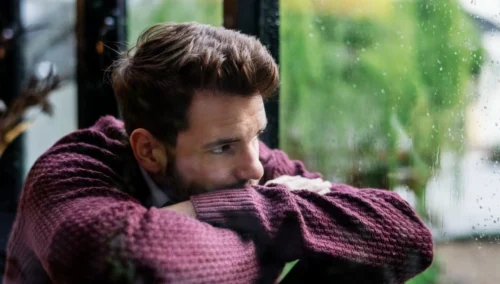
Sweating in sleep after drinking is a common issue that may persist or even intensify during the initial days of sobriety. It was also not always clearly stated that subjects were abstinent from cross-tolerant sedatives in addition to alcohol. Insomnia disorders are more likely to have a chronic course, to require independent treatment, and may contribute more directly to relapse during alcohol recovery. After several months of sobriety, many individuals experience a full restoration of their natural sleep-wake cycle. The body’s circadian rhythm becomes well-established, making it easier to fall asleep and wake up at consistent times. This regularity in sleep patterns contributes significantly to overall sleep quality and daytime functioning.
Heart rate increase
This involves adopting habits and creating an environment that promote restful sleep. Two key aspects of sleep hygiene are establishing a bedtime routine and creating a sleep-friendly environment. While some people find that drinking alcohol helps them fall asleep more easily, alcohol ultimately has a negative impact on sleep. Even in moderate amounts, alcohol consumed in the hours before bedtime can cost you sleep and leave you feeling tired the next day. Alcohol, known for its sedative properties, indeed can induce drowsiness and facilitate the onset of sleep.

Night Eating Syndrome: Symptoms, Causes, and Treatments
On the flip side, individuals who’ve had a more gray area drinking pattern and who maintain a healthy lifestyle may find the insomnia subsiding in a comparatively less span. Also, those who manage to adopt a healthier regime, post-alcohol detox tend to see improvements sooner. It reduces the time it takes to nod how to sleep without alcohol off (known as sleep onset latency), promoting deep sleep initially. But as the night progresses, this deep sleep period decreases, and you end up spending more time in less restorative sleep stages (like light sleep). Alcohol can have a sedative effect and cause a person to fall asleep more quickly than usual.

Press Play for Advice On Sleep Hygiene
In some cases, alcohol may have been masking or exacerbating pre-existing sleep issues. While alcohol doesn’t metabolize faster during sleep, it can interfere with the diagnosis and treatment of sleep disorders. As alcohol use ceases, these underlying conditions may become more apparent and may require professional attention. It’s worth noting that the long-term benefits of quitting alcohol extend beyond just improved sleep. Many individuals experience better physical health, improved mental clarity, and a greater sense of emotional well-being.
Meditation, in particular, aims to focus the mind and detach it from daily stressors that could hamper sleep quality. Similarly, deep breathing exercises can shift the body’s response from ‘fight or flight’ stress mode to a calm and relaxed state, conducive to restful sleep. Yoga combines both physical movement and mindfulness, making it a powerful tool to improve sleep quality. This altered sleep architecture during alcohol withdrawal is considered a contributor to relapse, as individuals may use alcohol in an attempt to restore sleep normality. Thus, understanding and addressing such sleep disturbances is critical during the recovery process.
Personal Relaxation Methods
Individuals who indulge in alcohol before bedtime often experience insomnia symptoms and feel excessively tired the next day. The prevalence of sleep apnea, a serious condition characterized by breathing interruptions during sleep, is also increased with alcohol consumption. Sober nights unfold like a time-lapse flower blooming, revealing the vibrant colors of restorative sleep long masked by alcohol’s dulling effects. This poetic imagery captures the transformative journey many experience when they decide to quit drinking alcohol. The path to better sleep after giving up alcohol is not always smooth, but it is undoubtedly rewarding. Chronic insomnia is a recurring difficulty in falling or staying asleep, persisting for at least three months.
Can’t Sleep Without Alcohol? Here’s What to Do.
If you or a loved one is struggling with addiction, our expert team is here to guide you every step of the way. With the proper support and treatment, overcoming this dependency is not only possible but can lead to a significant improvement in both mental and physical well-being. Seeking professional help is not a sign of weakness but a courageous step towards https://ecosoberhouse.com/ a healthier life. Many people turn to alcohol as a means of relaxing and inducing sleep. Learn how to get control of your drinking with our FREE webinar on quitting drinking. When we looked at the sleep needs of 1.95 million RISE users aged 24 and up, we found it ranged from five hours to 11 hours 30 minutes, but 48% needed eight hours or more sleep a night.

- Alcohol addiction can be difficult and potentially dangerous to recover from on your own.
- The body’s internal clock, which regulates the sleep-wake cycle, becomes more synchronized without the disruptive influence of alcohol.
- Contact us to learn more about alcohol addiction treatment programs that can work well for your needs in recovery.
